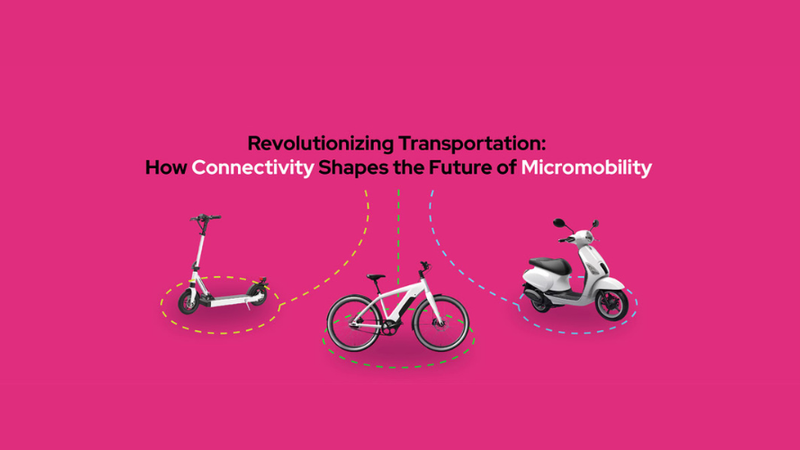Revolutionizing Transportation: How Connectivity Shapes the Future of Micromobility
The micromobility industry is at an exciting crossroads. As cities worldwide strive for smarter, cleaner, and more efficient modes of transportation, the importance of reliable connectivity in the micromobility sector is paramount.

The micromobility industry is at an exciting crossroads. As cities worldwide strive for smarter, cleaner, and more efficient modes of transportation, the importance of reliable connectivity in the micromobility sector is paramount.
Let’s explore the impact of connectivity on micromobility, offering insights into how businesses like Whizz, a New York City-based company that offers flexible e-bike rentals tailored for delivery riders, leverage software-defined connectivity to enhance customer satisfaction.
The Right Connectivity Partner is the Backbone of Micromobility
A trustworthy connectivity partner is the backbone of a micromobility provider. It enables real-time data collection and analysis, and, with the right monitoring software, can provide invaluable insights into device performance, user behavior, and operational efficiency.
Micromobility device providers continue to be faced with two crucial challenges: maintaining profitability, and ensuring seamless operational integration. Innovators within the industry are pioneering solutions to these obstacles, leveraging technologies such as GPS tracking, AI, and machine learning to enhance user experience and foster brand loyalty, which in turn boosts revenue through repeat customers. Whizz, for example, uses Monogoto’s connectivity solutions to track their bicycles, monitoring operational health—including preventing device theft.
Enhancing Customer Experience and Fostering Brand Loyalty
Software-defined connectivity is revolutionizing how micromobility services operate, providing the agility to adapt to changing environments and user needs. From enhancing service reliability with private networks to automating maintenance through predictive algorithms, this approach is setting new standards for operational excellence and cost efficiency in the micromobility sector.
At the heart of micromobility’s future is the imperative to deliver exceptional customer experiences and build lasting brand loyalty. Reducing failure rates and ensuring successful user engagements are critical to achieving this goal. Software-defined connectivity, like that offered by Monogoto, enables service providers like Whizz to develop reliable and user-friendly solutions that align with the high expectations of modern consumers. With Monogoto as their connectivity partner, Whizz can manage and scale their e-bike connectivity effortlessly, ensuring optimal service availability and performance. This technology also allows for better network management, security features, and seamless integration across different communication platforms, enhancing both operational efficiency and customer satisfaction.
Watch this webinar featuring Tanya Kashina, Head of Supply Chain at Whizz, to discover more about how software-defined connectivity solves salient challenges in the micromobility industry.
WATCH THE WEBINAR HERE
As the micromobility industry evolves, embracing connectivity advancements will be key to unlocking new opportunities for growth and customer engagement. Monogoto stands at the forefront of this journey, offering cutting-edge connectivity solutions that empower micromobility providers to redefine urban transportation. Book a demo with Monogoto today and take the first step towards a revolutionary experience.